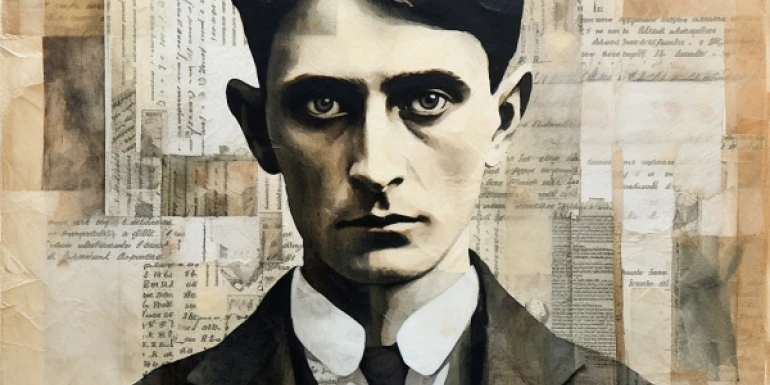by Franz Kafka


Franz Kafka Biography

Kafka's literary style is characterized by a sense of unease, absurdity, and alienation. His protagonists often find themselves trapped in bizarre and nightmarish situations that defy rational explanation. Kafka himself struggled with a deep sense of anxiety and guilt, which he attributed to his Jewishness, his fraught relationship with his father, and his failed romances. He was also plagued by a lifelong struggle with tuberculosis, which eventually claimed his life at the age of 40.
Kafka's literary career began in 1908 with the publication of his first short story, "Description of a Struggle," in the literary journal Hyperion. His breakthrough came in 1912 with the publication of "The Judgment," a novella that earned praise from writers such as Rainer Maria Rilke and Max Brod, Kafka's lifelong friend and literary executor. Kafka's reputation grew with the publication of "The Metamorphosis" in 1915, a surreal tale about a man who wakes up one day transformed into a giant insect. The story is often interpreted as a metaphor for Kafka's own sense of alienation and dislocation.
During World War I, Kafka was deemed unfit for military service due to his poor health, and he remained in Prague, where he continued to write and develop his literary style. In 1917, he began work on "The Trial," a novel about a man named Joseph K. who is arrested and tried without knowing the charges against him. The novel remained unfinished at the time of Kafka's death, and it was published posthumously by Max Brod, who ignored Kafka's dying wish to have all his manuscripts destroyed.
Kafka's final years were marked by declining health and a sense of despair. He moved frequently, seeking relief from his illness, but found little solace. He also pursued a doomed romance with Dora Diamant, a young Jewish woman who later emigrated to Palestine. Kafka died on June 3, 1924, in a sanatorium near Vienna, Austria. His legacy as one of the most important writers of the 20th century was cemented in the decades following his death, as his works were translated into numerous languages and became the subject of critical study and admiration.
In conclusion, Franz Kafka was a writer who explored the human psyche and the human condition through his surreal and introspective works. He struggled with a deep sense of anxiety and guilt, which he channeled into his writing. His work continues to resonate with readers today and has influenced countless writers and thinkers. Kafka's legacy as a literary genius is secure, and his contribution to the world of literature will be remembered for generations to come.

- Instructions Followed To The Letter
- Deadlines Met At Every Stage
- Unique And Plagiarism Free


 The Things They Carried
The Things They Carried
 A Good Man is Hard to Find
A Good Man is Hard to Find
 The Great Gatsby
The Great Gatsby